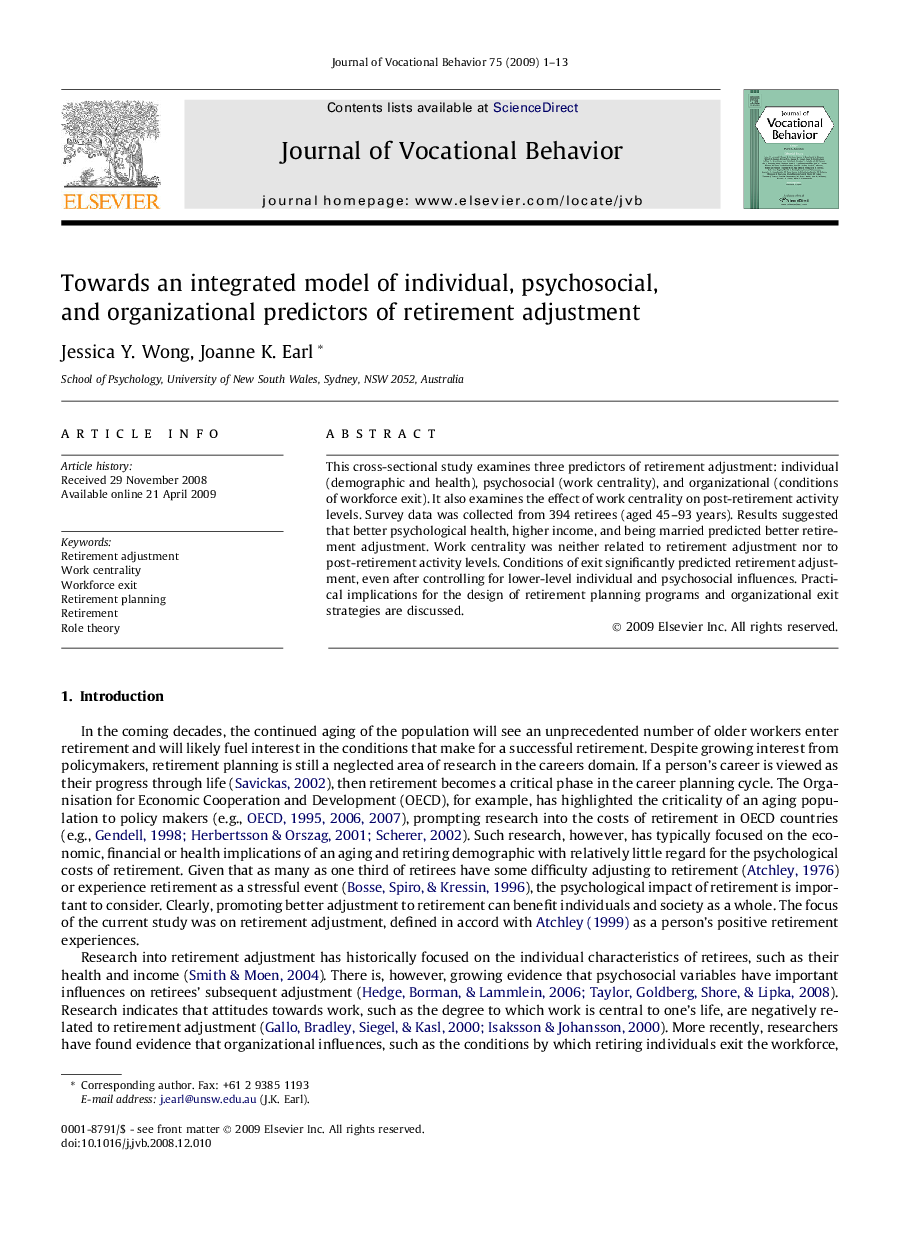| Article ID | Journal | Published Year | Pages | File Type |
|---|---|---|---|---|
| 887456 | Journal of Vocational Behavior | 2009 | 13 Pages |
This cross-sectional study examines three predictors of retirement adjustment: individual (demographic and health), psychosocial (work centrality), and organizational (conditions of workforce exit). It also examines the effect of work centrality on post-retirement activity levels. Survey data was collected from 394 retirees (aged 45–93 years). Results suggested that better psychological health, higher income, and being married predicted better retirement adjustment. Work centrality was neither related to retirement adjustment nor to post-retirement activity levels. Conditions of exit significantly predicted retirement adjustment, even after controlling for lower-level individual and psychosocial influences. Practical implications for the design of retirement planning programs and organizational exit strategies are discussed.
